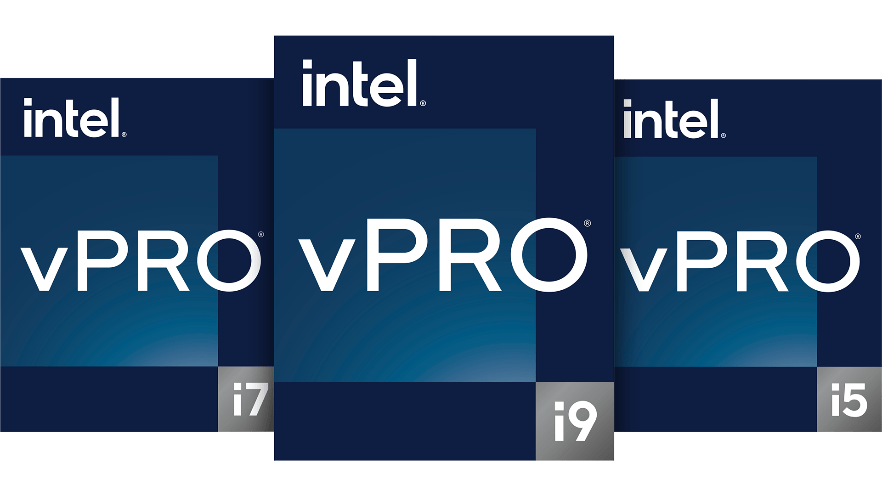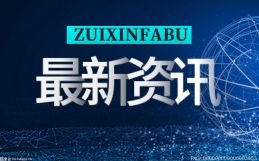How can financial institutions build intelligent IT bases when industry digitalization enters the fast lane?

You may also be interested in:
-
Industry digitalization has entered the fast lane. How can financial institutions play -
Administrative detention! To defraud customs by false certificates and malicious complaints -
Attack! CMB credit card helps the police crack down on finance -
Who can lead Jiaotong University to develop better? Reviewing the old and new -
Joining hands with more than 500 first-class suppliers, Xiaopeng Auto has built -
Xiaopeng Auto released Q1 financial report: the revenue is 4.03 billion yuan, and now -
Runhe Software released a white paper, proposing "AI 1+6+N development..." -
Spreading payment anti fraud propaganda. If you want to pay safely, you can
Today's Hot Spots
Recommended for you
Xinyu, Jiangxi Province: The transformation of catering kitchens is "hot"
more
-
The song club of Reed Foreign Exchange Shanghai Operation Center feels the singing and summer carnival -
Reed Foreign Exchange Anhui Hefei Office Wealth Salon Brings Wealth Light to Investors -
Fuchuang University: Chen Tianwei shares financial knowledge with you, and Shiyan training ends perfectly -
Reed Forex Jiashan Wealth Sharing will move towards the goal of wealth! -
Fuchuang University held an economic situation analysis meeting, and Chen Tianwei decrypted the golden period of foreign exchange -
Explore the mystery of wealth investment, here comes the Wealth Salon of Leader Foreign Exchange Chifeng Office! -
Talk about the future of the industry! All the talents gather in Lide Foreign Exchange Nanning Fortune Salon -
Reed Foreign Exchange: Use the power of finance to illuminate the road to wealth
more
-
"Meta Universe" is good! Five departments jointly issued the latest action plan -
At the beginning of the month, there was a rare shortage of funds. The central bank launched a large amount of reverse repo to protect market liquidity -
The China Assessment Association issued the guidance on data asset evaluation, which will be implemented on October 1 -
The National Development and Reform Commission centrally and publicly introduces a number of key projects that attract private capital to participate -
The National Development and Reform Commission centrally and publicly introduces a number of key projects that attract private capital to participate -
The National Development and Reform Commission has focused on public promotion of a number of key projects that attract private capital participation -
National stock transfer companies issued guidelines for the implementation of financial information correction and revised relevant guidelines and templates -
National stock transfer companies issued guidelines for the correction of financial information, giving full play to the new third board market
Ranking
-
American made meat brand Beyond will enter the Chinese market -
One batch of Lu'an melon slices of Anhui Mingbaochun Tea Co., Ltd. failed to pass the sampling inspection -
RELX Yueke Announces the Launch of the New Retail "361 Plan", Investing 600 Million in Three Years and Opening 10000 Stores -
Alibaba Cloud won the National Award for Technological Invention -
Lei Jun, Chairman of Xiaomi Group, Announces the First Xiaomi Million Dollar Technology Award -
JumeiYoupin received a privatization tender offer of $20 per ADS -
Science and technology to strengthen agricultural industry -
The digitalization of the tertiary industry has spawned a large number of online jobs -
WeChat team is currently facing the test of organizational ability, and short content has always been the direction of development -
Sogou Maps released the first mobile phone map AR live driving navigation function in China
Wonderful push
-
How can financial institutions build intelligent IT bases when industry digitalization enters the fast lane? -
In 2015, the guy found a loophole in the "lottery", earning 8 billion in cash a year, buying two villas to hoard money -
Today's unreasonable means (what's the meaning of unreasonable?) -
Interpretation by the National Bureau of Statistics: CPI increased slightly month on month, and PPI changed from lower to higher month on month -
The downward cycle of memory chips is expected to bottom out, and A-share listed companies accelerate their layout -
Guangfa's strategy in depth: bottom of profit, picking up the highlights of "dilemma reversal" -
Tiantangchong Lake: There are 430 kinds of aquatic plants in the wetland -
Xiaomijia fruit and vegetable cleaning machine: decontamination, sterilization and pesticide residue reduction, crowd raised price 449 yuan -
US household net assets Q2 climbed to a record high of US $154.3 trillion -
Goldman Sachs strategist: the possibility of US economic recession is rising -
Tea garden soil management and fertilization technology (brief introduction to tea garden soil management and fertilization technology) -
Tea cultivation technology (brief introduction to tea cultivation technology) -
Labor agreement pending Las Vegas hotel industry employees or strike -
The total revenue of Macao's gambling industry in 2022 will decrease by 49.2% year-on-year to MOP 46.20 billion -
More than 12 million mu of bamboo pulp forest Sichuan will aim at improving quality, expanding volume and increasing efficiency of bamboo pulp paper industry -
Bank of America warns that high interest rates for a long time will hurt US stocks -
CCTD: The peak consumption season has come to an end. The coal import volume in September has decreased month on month -
The CSRC issued the Accounting Supervision Report on 2022 Annual Financial Report of Listed Companies -
Loudi: Medical school cooperates to comprehensively protect campus health -
HSBC plans to raise the limit of H by locking interest: AP: Hong Kong property market is expected to suffer more -
In August, the global food price fell to a low point of more than two years. The supply risk remains -
The CSRC issued the Rules for the Implementation of Administrative Penalties and Confiscations -
CSRC: It is proposed to expand the types of pilot assets of public REITs to consumer infrastructure -
The unexpected growth of industrial output in France and Spain makes the European Central Bank more difficult? -
Hunan reported six typical cases of leading cadres using their power or influence to make profits for relatives and friends -
National Development and Reform Commission: strengthen support for key enterprises to borrow medium and long-term foreign debt -
GGII: In July, China's export of new energy vehicles was about 101000, up 87% year on year -
South Korea faces the threat of strike, and the automobile industry bears the brunt -
Shiti: The Spanish coach knows Yamal very well, and he included him in the plan in February -
Hong Kong: In the second quarter, the revenue of accommodation service industry increased 45.5% year on year, and that of retail industry increased 17.5% year on year -
The energy crisis may reappear! Australia strikes pressure supply, experts warn the global natural gas market -
Summary of Universal Templates for Self taught English (II) Composition in October 2023 -
Hong Kong Web3.0 Association suggests: building an open licensing blockchain to speed up the landing of Hong Kong stable currency -
"Dove interest rate hike" or "Hawk pause"? The European Central Bank is in a dilemma -
Passenger Car Federation: In August, retail sales of passenger cars reached 1.92 million, up 2.5% year on year -
TV "Taowa" Charging Renovation, "Remote Control" Returned to the Audience -
"Abundant" picturesque scenery Yingjiang, Yunnan, more than 300000 mu of paddy fields were harvested in autumn -
How can Europe avoid another energy crisis? French nuclear power to help -
REC survey: the demand for employment in Britain has declined at the fastest rate in more than three years -
Chevron (CVX. US): Australia Strike Talks Failed; European Natural Gas Prices "Surprised" to Rise 11% -
Expert: The heavy rainfall in Shenzhen is due to the "train effect". Pay attention to defense! -
Omdia: It is estimated that the global I/O module market value will be 8.3 billion dollars in 2022 -
Ziguang Guowei rose rapidly on September 8 -
HKEx cancels all day trading on Friday -
Walking in the city, walking in Ganzhou, Zaoer Lane, Jianchunmen Ancient Floating Bridge and Standard Bell Tower -
Soochow Securities: Is the Earnings of American Stock Companies Rebound Soon? Employment cost is the biggest risk -
Sensor Tower: In August, a total of 40 Chinese manufacturers were shortlisted in the global mobile game publisher revenue list -
Betting on the "panic index" soared by 1100%! Why are some traders so crazy? -
2024 College Entrance Examination Composition Prediction: Temper Tough Quality, Achieve a Brilliant Life -
Business agency: cost support remains, and the price of spandex keeps rising -
More pessimistic than Xiaomo! Suntory CEO: The exchange rate of yen against the US dollar may fall to 170 -
Businesses and consumers cut spending Japan's economy slows -
Business agency: the price decline of lithium carbonate continues to be a short-term weak shock -
The sales of mooncakes are getting better and better, and many "dark horses" are competing -
Canalys: The personal computer market in Western Europe is expected to recover in the second half of 2013 -
The three major indexes collectively opened at a low price, the Shanghai Index opened at a low price of 0.26%, the Shenzhen Composite Index opened at a low price of 0.36%, and the GEM opened at a low price -
The number one market cap in the world is unstable! Needham: AI may overturn the dominance of Apple (AAPL. US) -
Goldman Sachs warns that the oil price may hit US $107 per barrel due to production cuts in Saudi Arabia and Russia -
Investor interest continues to weaken, and the transaction volume of cryptocurrency hit a new low in August -
HKEx: delayed opening of securities and derivatives market due to black rainstorm warning -
The US economy is resilient. Wall Street's biggest short seller surrenders! Raise year-end S&P 500 forecast -
The 30-year mortgage interest rate in the United States has dropped from its peak for two weeks to 7.12% -
The President of the Central Bank of China said that the fight against inflation is just around the corner, suggesting that the interest rate hike may be near the end -
Silicon Industry Branch: In September, the output of monocrystalline silicon increased slightly, and the price of silicon chips diverged -
The number of Americans applying for unemployment benefits for the first time last week fell for four consecutive weeks, hitting the lowest level since February -
Severe drought may reduce Thailand's sugar output by nearly 20%, exacerbating global supply tension -
China Construction Machinery Industry Association: 13105 excavators were sold in August, down 27.5% year on year -
Automobile Circulation Association: second-hand car market begins to show signs of stabilization -
In August, China's imports of 640000 tons of steel fell 5.6% month on month -
The downturn in exports dragged down the economy. The quarterly GDP rate of the euro zone in the second quarter was revised down to 0.1% -
The National Development and Reform Commission and the Securities Regulatory Commission strengthened the analysis of iron ore price situation and market supervision -
Jibang Consulting: It is expected that the price of silicon material will continue to rise slightly in the short term -
Fitch: New Italian NPL regulations will create uncertainty -
Beijing Municipal Market Supervision Bureau held emergency drills for food safety accidents -
Jinshan, Shanghai: Take multiple measures to make "tip consumption" in rural areas more reassuring -
Xinyu, Jiangxi Province: The transformation of catering kitchens is "hot" -
Fujian Ningde: Interview with 18 online catering third-party platform agents -
Shanghai: adjust the maximum loan term of the city's housing provident fund for purchasing stock housing on October 7 -
Saving money is better than saving golden beans? Risk of loss should be prevented -
License costs have soared tenfold! The cumbersome approval has become the "obstacle" to the expansion of German wind power -
The official foreign exchange reserve assets of Hong Kong at the end of August were $418.4 billion -
State Administration of Foreign Exchange: At the end of August, the scale of China's foreign exchange reserves was 3160.1 billion US dollars, compared with that at the end of July -
Germany releases weak economic data again European stocks may record the longest consecutive decline since 2018 -
Who will be most affected by the reduction of interest rate of stock housing loan -
Report tracking | Anti addiction system becomes a display of Sanwen NetEase game of Shanghai Consumer Protection Commission -
The economic "locomotive" can't run! Germany's industrial output unexpectedly declined, "the sick man of Europe..." -
Shanghai launched a special campaign to control the quality and safety of children's and student supplies, investigated 179 cases and fined them -
"Iron Fist" Action | 2023 Typical Case of "Iron Fist" Action in the Field of People's Livelihood (No -
The implementation of the new packaging standard sees the market | The reporter visited the moon cake market in Fuzhou, Fujian: "mixed packaging..." -
South Korea's exports slightly warmed up in August, and global trade showed signs of recovery -
Data.ai: In the first half of the year, the overall application expenditure in the Middle East reached 2.1 billion dollars, up 15% year on year -
Actor Zhou Jie: At the last moment of his life, he insisted on returning to China. He chartered a plane to Shanghai and died five days later -
Central Bank: cut the foreign exchange reserve ratio of financial institutions by 2 percentage points from September 15 -
Super typhoon "Sula" is approaching! Hong Kong Stock Exchange (00388) canceled the morning trading forecast -
China Index Research Institute: Top 100 real estate enterprises saw a year-on-year decrease of 8.6% in total sales of 4365.61 billion yuan from January to August -
Ultra short term US debt ETF crazy gold sucking cash assets trading to avoid fluctuations "good heart" -
Xingqi Ophthalmology (300573) On August 31, the net purchase of main funds was 27.8744 million yuan -
Oriental "company+farmer" model to build a black goat breeding base -
The US Monetary Fund continues to attract money! Assets climbed to a record high of $5.58 trillion -
Several banks have officially announced to cut deposit interest rates by a maximum of 25 basis points
this Daily news
-
What does a stock fund mean? What are the types of stock funds? -
Which is more risky for equity funds and bond funds? Differences between stock funds and bond funds -
How many days is the credit card grace period? What are the consequences of overdue credit cards? -
Which is the leading gainer of the concept of metal recycling? On December 5, the market value of Yitong New Material was 2.689 billion yuan -
How many shares are there in the concept of electronic cigarette? What is the stock price of Microenterprise on December 2? -
What does offshore RMB mean? What is the offshore RMB exchange rate against the US dollar? -
What are the skills of silver investment? What should we pay attention to in silver investment? -
What is the account opening process of treasury bond futures? What are the precautions for opening a treasury bond futures account? -
What does treasury bond futures mean? How many contracts are there in treasury bond futures? -
Is gold investment profitable? What are the international gold investment varieties?








